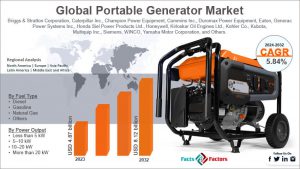Greenko Company of Hyderabad has partnered with Ayana-Renewable-Power Private Limited of the National Investment & Infrastructure Fund to retain 6 GWh of power in hydroelectric pump storage units that Greenko is creating in Pinnapuram, Andhra Pradesh.
The agreement would help to ensure that green energy is available to electrical distribution companies and user industries around the clock. The goal is to employ low-cost green power during off-peak hours to elevate water to a set height, then release it into a lower reservoir to generate energy when the need for electricity rises.
In a first-of-its-kind collaboration, Ayana Renewable Power Pvt. Ltd. and Greenko Group have agreed to provide independent storage capacity to construct reliable and dispatchable RE solutions, including a 24-hour power supply of up to 1 gigawatt, the companies stated in a joint statement. Given that electricity is produced sporadically from sustainable energy sources such as wind and solar, large storage facilities can assist in maintaining India’s power systems stable.
This comes as the Union budget includes energy storage technologies like grid-scale battery systems and dense charging infrastructure in its harmonized list of infrastructures, making it simpler for such initiatives to secure financing.
“It would be made available in India to a wide range of sectors and distribution organizations.” According to the report, “Greenko Group issued a total of 6000 MWhr of storage capacity, including 1500 MWhr in the first phase of its novel OCPSP (Off Stream Closed Loop Pumped Storage Project”).”
Greenko has India’s biggest operational renewable energy portfolio of 7.3 gigawatts and is developing 30 gigawatt-hours of storage capacity as part of its aim to install a 100 GWh energy storage cloud platform. It is supported by GIC Holdings Pte Ltd, ADIA, and ORIX Corp, Japan. This comes in the wake of a new “Energy Storage System” (ESS) coverage that proposes no requirement for environmental approval for off-river pumped storage plants and no commitment to free power to the affected states.
As part of the planned ESS policy, India may also delicense the construction of standalone battery storage systems, enabling their lease, sale, or hire, and allow the selling of stored electricity via power purchase agreements and across exchanges. According to the “Discussion Paper on Policy on Energy Storage Systems,” the energy transmission cost for selling or purchasing electricity from these storage facilities may also be eliminated.
The collaboration creates a model for storage transactions in the country, and it aligns with the ministry of power/minister of new and renewable energy goal of establishing a stand-alone storage market in the country. Such integrated renewable energy and storage facilities demonstrate India’s renewable energy sector’s maturity.

